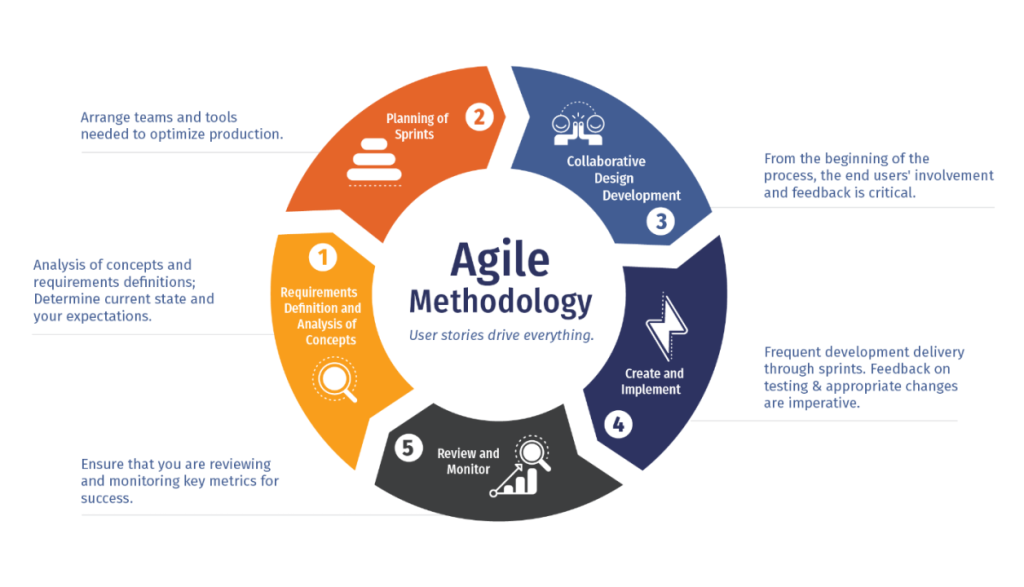In order to effectively negotiate uncertainty and change in the fast-paced and constantly-evolving business world of today, firms need to implement agile business strategies. Antiquated company models, which frequently depend on inflexible frameworks and lengthy preparation, are losing their viability in a world marked by quickening technology progress, fluctuating consumer needs, and unanticipated world events. Agile business techniques promote resilience and adaptability by enabling firms to react to these changes quickly and effectively. Businesses may take advantage of new opportunities, remain ahead of the curve, and reduce risks related to uncertainty by embracing agility.
Iterative procedures, flexibility, and continual improvement are the main focuses of agile business strategy. These tactics give priority to client feedback, enabling businesses to improve their goods and services in response to immediate feedback. Agile methodologies, in contrast to traditional methods, encourage teams to work in short cycles, or sprints, where they can quickly produce, test, and adapt their outputs. This iterative method improves the final product’s overall quality while simultaneously cutting the time to market. Furthermore, firms may make sure they stay in line with changing market trends and customer expectations by routinely evaluating performance and making small adjustments.
Cross-functional cooperation is one of the fundamental tenets of agile company strategies. Dismantling departmental silos within a company promotes improved departmental collaboration and communication. Teams with personnel from many departments, including development, marketing, and customer service, collaborate to achieve shared objectives. This cooperative strategy makes sure that different viewpoints are taken into account, which results in more creative ideas and better decision-making. Additionally, because they can draw on their combined knowledge and experience, cross-functional teams are better suited to manage challenging projects and adjust to changes more quickly.
A change in the organization’s culture is also required for the adoption of agile business strategies. A culture of experimentation, learning, and openness must be encouraged by leaders. Fostering innovation and resilience requires encouraging staff members to take measured risks and see setbacks as teaching opportunities. Furthermore, open communication and openness are essential elements of an agile culture. Team members are more engaged and driven to participate successfully when they are regularly informed about the objectives, advancement, and difficulties of the company. This shift in culture not only improves worker satisfaction but also boosts overall company performance.
In the future, agile corporate tactics will become even more crucial for managing change and unpredictability. With the speed at which global events and technological breakthroughs are reshaping industries, organizations need to be ready to quickly pivot and adjust to these new realities. By making investments in agile frameworks, technologies, and training, organizations may give themselves the tools they need to prosper in a changing environment. Sustained success will also depend on preserving a customer-centric strategy and encouraging a continuous improvement culture. Businesses can develop the adaptability and resilience required to negotiate future uncertainty and seize new opportunities by implementing agile business strategies.
To sum up, in today’s fast-paced business environment, agile business strategies are essential for managing uncertainty and change. Businesses can adapt successfully to changing market conditions and consumer expectations by emphasizing flexibility, continuous improvement, cross-functional collaboration, and a supportive organizational culture. Adopting agile methods promotes creativity and employee involvement in addition to improving operational effectiveness and product quality. Organizations adopting agile business methods will be better equipped to weather uncertainty and maintain long-term profitability and a competitive edge as the rate of change quickens.

